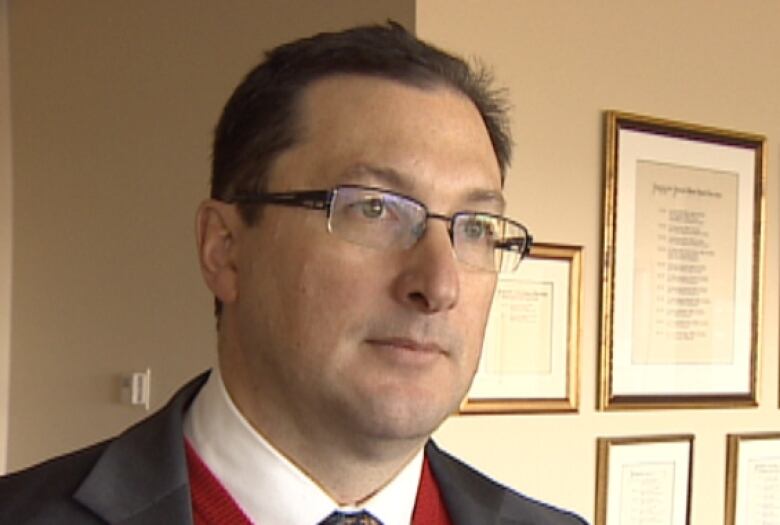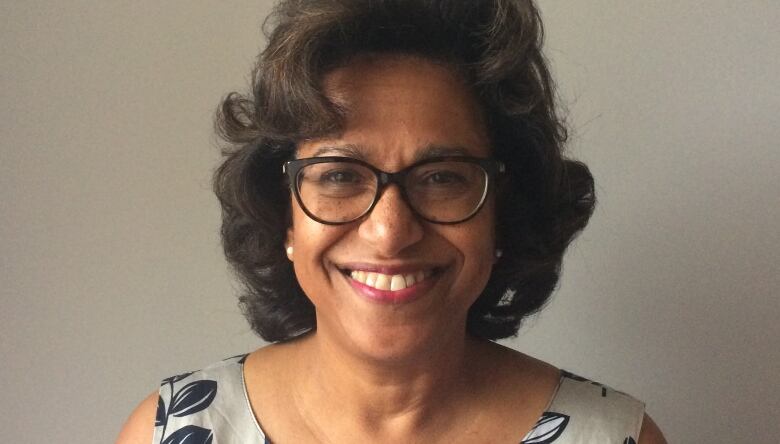Dalhousie medical school struggling to attract black and Indigenous students
'Candidates from diverse backgrounds might not apply because of an apprehension of bias,' says report

Dalhousie University's medical school is struggling to attract African-Canadian and Indigenous students, and its admission process is partly to blame, a review committee has found.
The committee's 12-page report was submitted last August to the medical school's dean, Dr. David Anderson, but it was just recently made public.
"The committee speculates that potential candidates from diverse backgrounds might not apply because of an apprehension of bias against them within the admissions process," said the report.
Both African-Canadian and Indigenous people are under-represented in the medical profession, said the chair of the review committee, Dr. Gus Grant. He's also the registrar and CEO of the College of Physicians and Surgeons of Nova Scotia, the body that regulates and licenses doctors in the province.

"I think it's important that the profession be made up of individuals who represent the communities that are being served," said Grant.
No figures are available on the number of black and Indigenous doctors practising in Nova Scotia because the college does not ask doctors to self-identify by race.
Last year, Anderson ordered the independent external review of the admissions process in part because of the lack of diversity. The last such review was done a decade ago.
Too much weight given to admission exam
The report also found the admissions committee placed too much weight on the medical college admission test (MCAT) scores and the grade-point average of candidates.
Grant said that while cognitive ability is important for practising medicine, grade-point average and MCAT results aren't great measures of it.
"Cognitive ability is important for physicians, but I can't fairly say that it's more important than empathy, reliability, consistency, earnestness and other characteristics," said Grant.
Starting in 2018, the medical school will use an online video-based tool to assess potential students for empathy, integrity, resiliency and communication skills.
Grant said it's been long accepted that standardized tests like MCATs put minorities and people from lower socio-economic backgrounds at a disadvantage and they score lower on these exams. One reason Grant gave is that poorer applicants might not be able to afford to take MCAT preparatory courses.
Recommendations from report
Some of the report's recommendations were to:
- Institute a minimum requirement for test scores.
- Require the 22-member admission's committee to include gender-diverse representatives of the African-Canadian and Indigenous communities, while also collaborating with these two communities to determine admission criteria.
The first requirement has not yet changed, but the second one has been implemented.
More diversity needed in health-care system
Sharon Davis-Murdoch is co-president of the Health Association of African Canadians, a group that promotes health in the black community. She said for young children of African descent to see themselves in health professions, they need to be aware a career in the field is possible.
"The representation of people of African descent at every level of the health system, including the highest levels of health administration, needs to be in place in order for the system to be improved, for the system to serve appropriately and for the system to be reflective of all of us," said Davis-Murdoch.

Anderson, the dean of Dalhousie University's medical school,was not available for an interview.
In a statement, Anne Weeden, the medical school's assistant dean of operations, said the school has ongoing programs designed to attract and support African-Canadian and Indigenous students. This includes havingtwo dedicated managers:one who focuses on the needs of African-Nova Scotian students and the other on Indigenous ones.
"Both programs and managers work at a variety of levels to support students, including through pathways and camps involving junior high and high school students, advising on medical school admissions and assisting students successful at entering medicine," she said.
The university saw its largest class of doctors of African descent graduate when six received their medical degrees in May.












_(720p).jpg)


 OFFICIAL HD MUSIC VIDEO.jpg)
.jpg)



























































































